
The timeless appeal of marble countertops makes them a worthwhile investment for any kitchen or bathroom, and with proper maintenance, this luxurious material can last up to fifty years or more.
However, keeping your marble in good condition requires regular cleaning to avoid damage and ensure the longevity of your bathroom or kitchen countertops.
Below, our cleaning experts have outlined the dos and don'ts to keep your marble surfaces looking flawless for years to come.
How to clean marble countertops
'Before using any new cleaning product or method, always test it in a small, inconspicuous area to ensure compatibility with your marble countertops,' advises Karina Toner, operations manager at Spekless Cleaning.
What you will need

To effectively clean your marble bathroom or kitchen countertops, you will need the following tools:
- Mild Dish Soap: Choose a pH-neutral, mild dish soap for gentle cleaning.
- Warm Water: Use warm water to dilute the dish soap for cleaning.
- Soft Microfiber Cloth: To avoid scratching the marble surface, opt for a soft microfiber cloth, like these USANOOKS microfiber cloths from Amazon.
- pH-Neutral Cleaner (Optional): For tougher stains, you can use a pH-neutral cleaner specifically designed for marble surfaces, such as this Granite Gold cleaner from Walmart.
- Soft towel or cloth: For removing loose debris and dust and for drying.
1. Prepare the surface
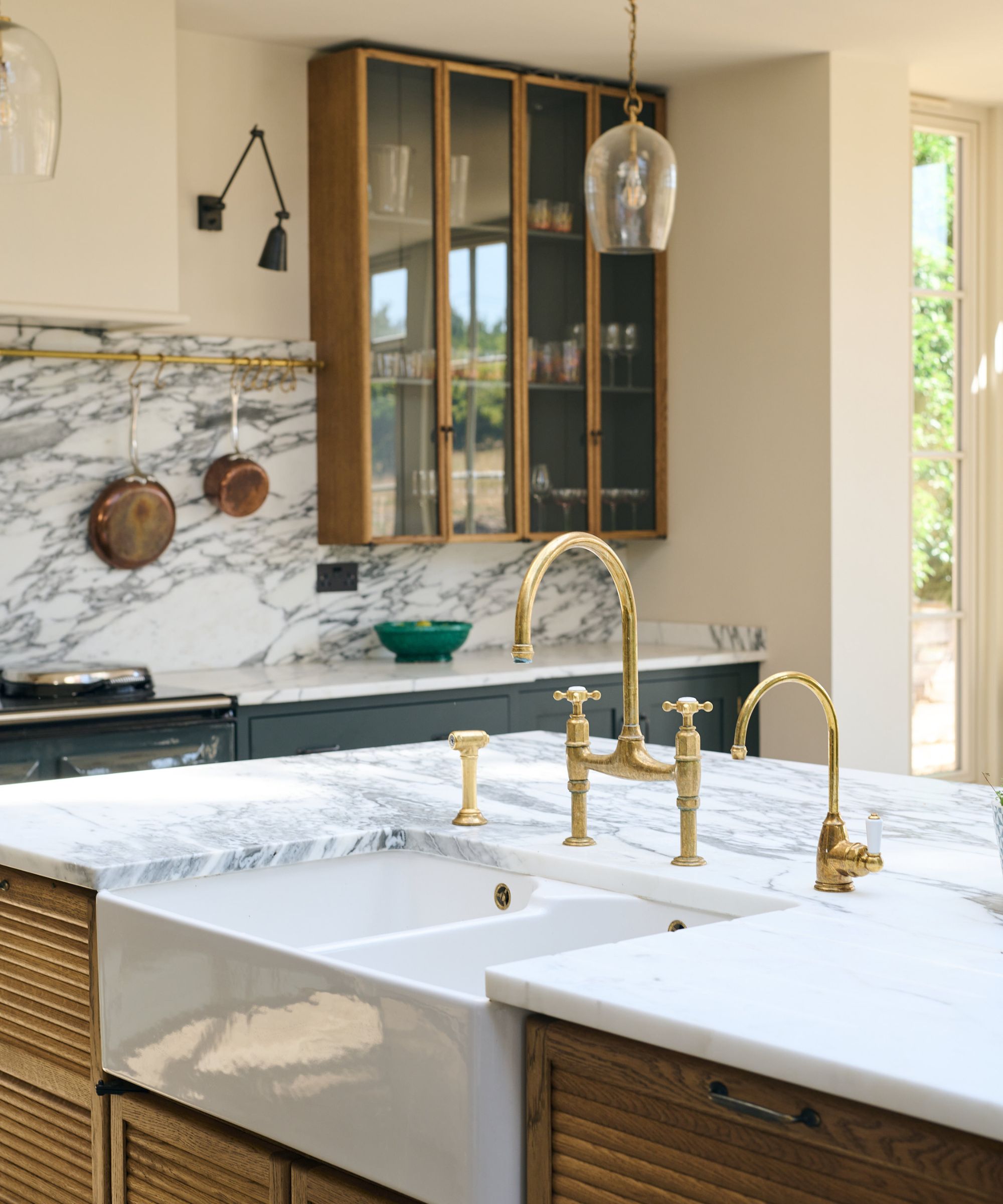
Before you start, clear the countertop of any items, debris, or spills to make the cleaning process easier.
'Wipe the marble with a soft/damp cloth to remove any loose dirt and dust,' advises Paulo Filho, owner of Celestial Commercial Cleaning Service.
2. Mix the cleaning solution

Fill up a bowl or container with warm water, and then add a small amount of mild dish soap. 'If mild dish soap isn't effective, you can use a pH-neutral cleaner formulated for marble surfaces,' advises Karina Toner.
Use a ratio of around one tablespoon of dish soap or pH cleaner per gallon of warm water. This should provide enough cleaning power to remove dirt and grime without harming the marble surface.
3. Clean the countertop
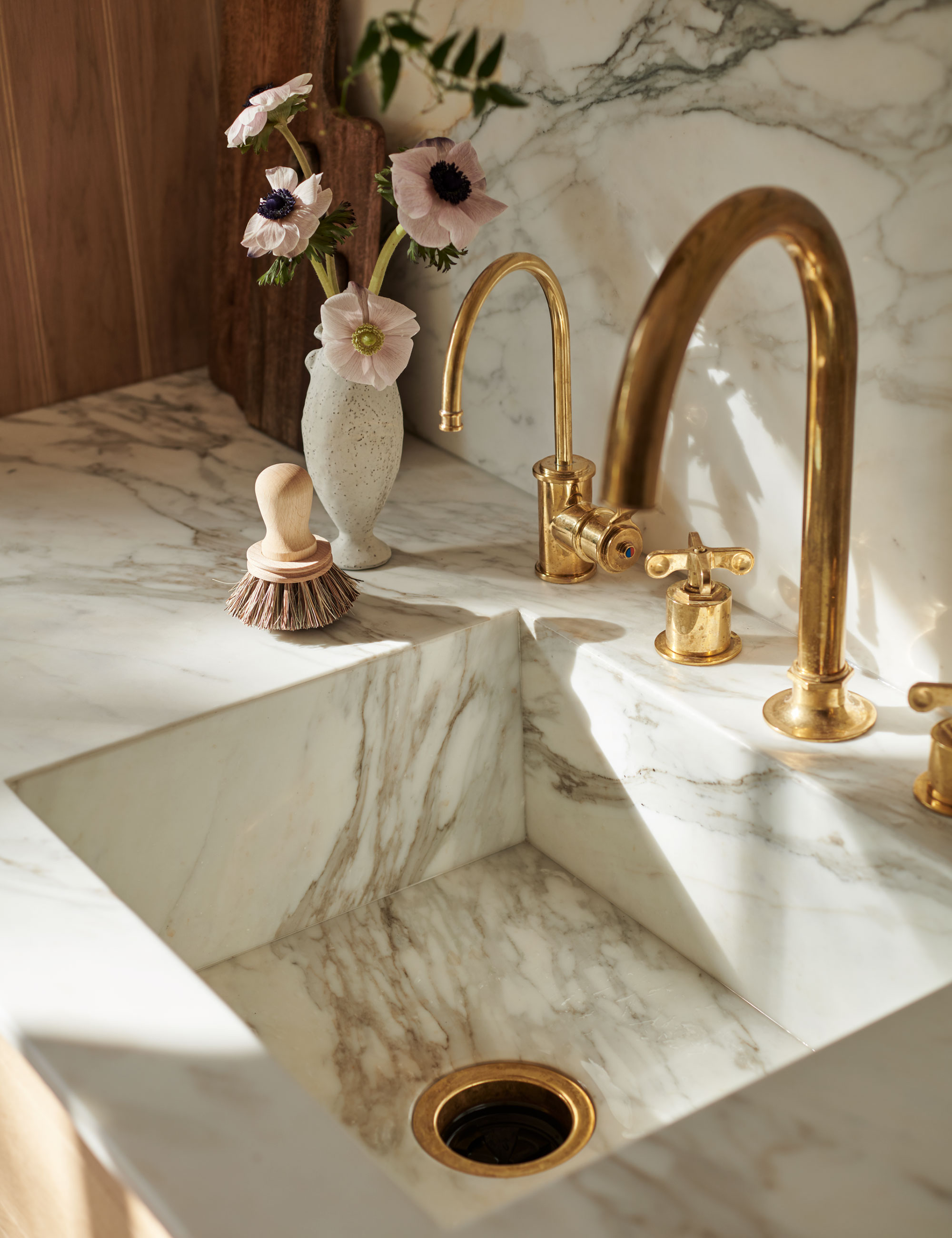
Dip your microfiber cloth or sponge into the cleaning solution and wring out any excess water. Gently wipe down the entire surface of the marble countertop.
'Steer clear of abrasive sponges or brushes that can scratch the marble,' recommends Karina Toner.
Give extra attention to areas with spills or stains. Let the cleaning solution sit on the affected area for a few minutes for stubborn stains to help loosen them.
4. Rinse Thoroughly
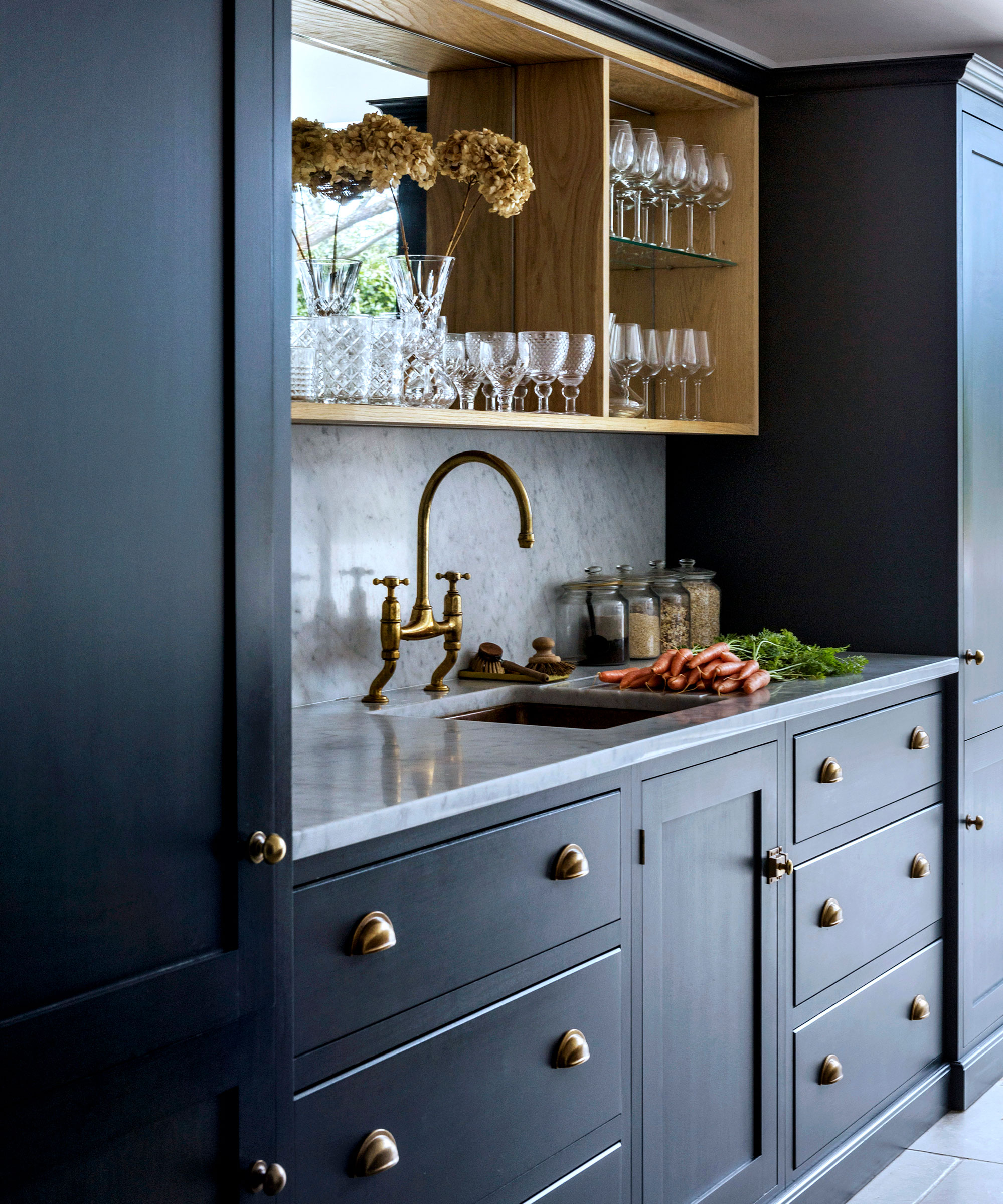
Soap buildup could dull the marble's shine over time. So, Karina Toner suggests rinsing the countertops thoroughly with clean water to remove any soap residue.
5. Dry the Surface

Use a dry, soft cloth to dry the marble surface completely, preventing water spots or streaks. Avoid air-drying, as this could leave water spots on the surface.
How to spot clean
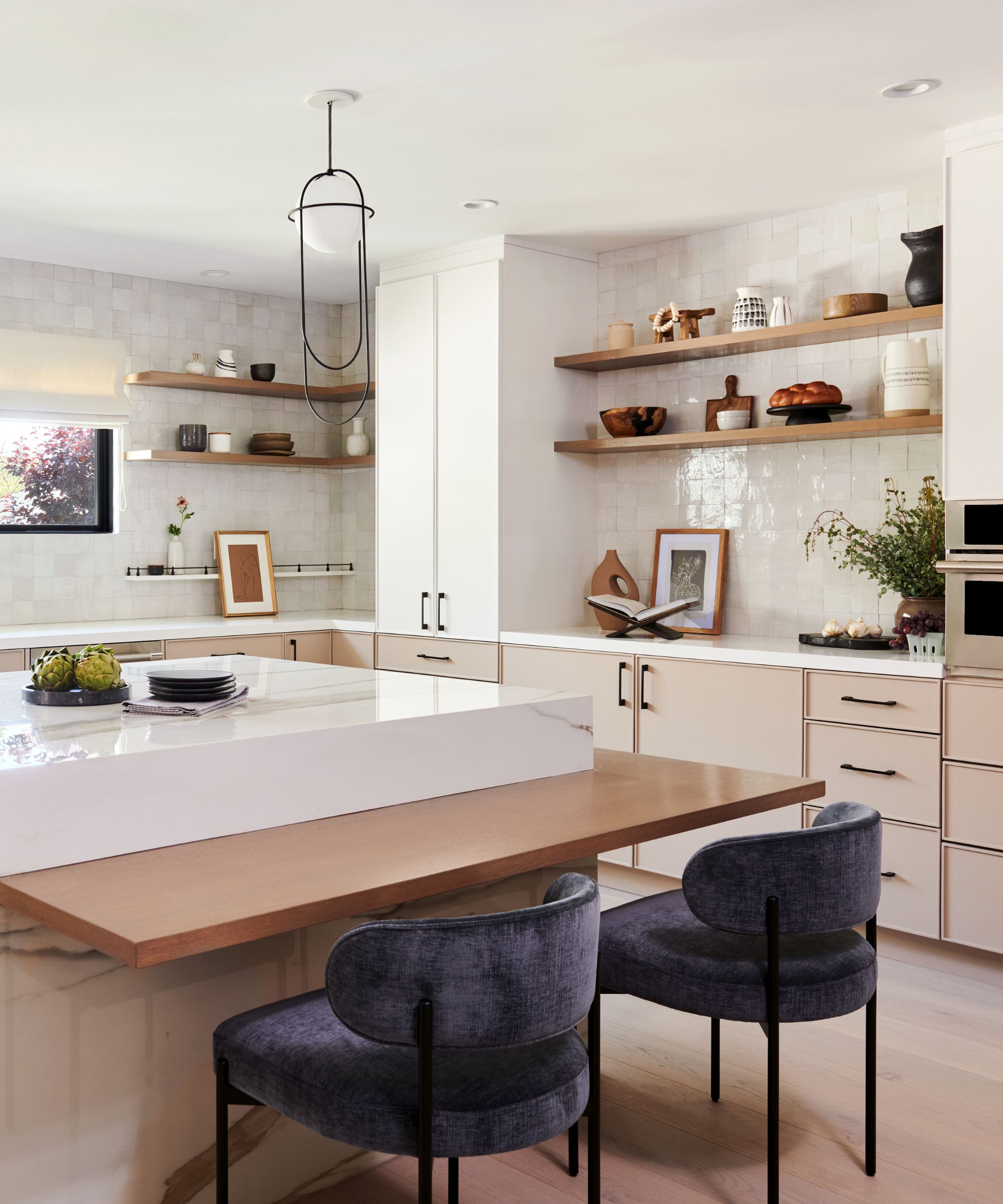
'For stubborn marble kitchen stains – like coffee or red wine – create a paste with baking soda and water,' advises Karina Toner. 'Apply this paste to the stained area, cover with plastic wrap, and let it sit overnight.'
Then, gently wipe it off with a wet cloth and dry it with a soft towel. This method should remove the stain without harming the marble.
Top tip: In the future, instead of wiping spills, blot them with a clean cloth to prevent spreading and minimize absorption into the marble.
How to clean hard water build-up
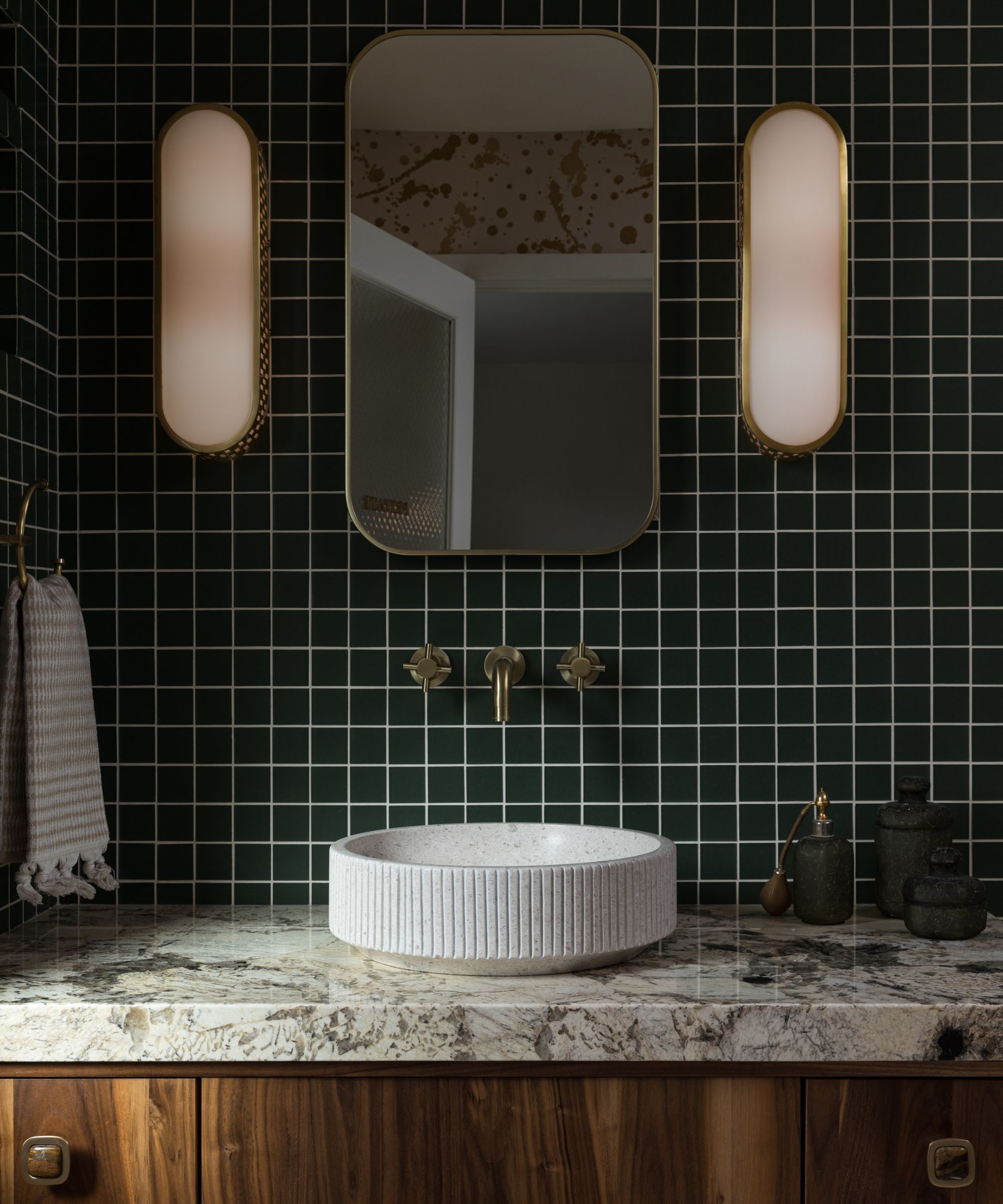
Hard water buildup can leave your marble looking dull and cloudy. To remove it, mix equal parts of distilled white vinegar and water in a spray bottle, such as this one, from Walmart.
Spray the solution on the countertop and let it sit for a few minutes before wiping it off with a damp cloth. Then, dry the surface with a soft towel.
FAQs
What cleaners should you not use on marble?
'If you do need to disinfect your marble countertops, don't use bleach, ammonia, lemon juice, vinegar, or hydrogen peroxide, as these can damage the marble and the sealer,' explains Corinne Segura, founder of My Chemical-Free House. 'You can use HOCL (Hypochlorous Acid) or alcohol to safely disinfect marble.'
'Lastly, let's not forget about the finishing touch - polishing. Use a stone polish specifically made for marble to restore its shine and luster,' advises Robin Aebischer, an interior designer and co-founder of BUYnBLUE.
'Apply the polish using a clean, soft cloth in a circular motion and buff it off with a dry cloth for a stunning finish. Depending on the type of marble and its finish, consider sealing the countertops every 6 to 12 months to protect against stains and etching.'







